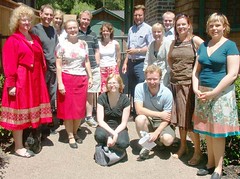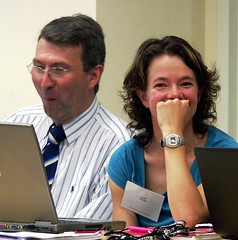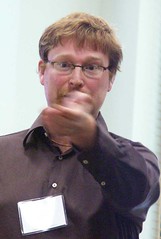Support for the Balkan region

Prof Mojmir Mrak, University of Ljubljana, Dr. Boris Cizelj, Director SBRA, Ivan Čehok Mayor of Varaždin, Dženana Abdalajbegović, Head of Cabinet Bosnia and Herzegovina, Liljana Božovič, Directorate for SME Development Montenegro.
The Balkan countries are really cool. They were always considered the outside troublemakers by the old Europe, but are fast becoming a part of Europe. I admit there are still a few issues to deal with, mildly speaking. Ethnical, national and border disputes may still destabilize the region, but I strongly believe that the best way to democracy, growth and political and legal stability is free trade, bilateral contacts and closer cooperation with the EU.
The region south east of Europe has created its own cultural and national profile. They are really a fresh breeze to the old conservative Europe. I like cross-culture – be it nations or regions. In the long run they usually are the most innovative and progressive, and make the best food.
I have spent a week in a warm (+31C) Solvenia at the European Regional Economic Forum 2006 in Nova Gorica , discussing how to build regional innovation support for the knowledge society.
Balkan have made great progress the last few years. GDP is around 5 %, with Albania and Turkey far above the average. Inflation is under 4 %, except for Serbia, Turkey and Romania. The only countries that have a large fiscal imbalance are Albania and Croatia. The trade increases 11 % a year. Except for Turkey all countries have put their debt on a sound basis.
It was interesting to get the many different opinions from the regional authorities on the competitiveness of their neighbors. Some claimed that Croatia (Hrvatska) has the real potential as the next tourist paradise; others promoted great media business opportunities in Serbia (Republika Srbija). Romania is supposed to be excellent for real estate investments and Albania should have surprisingly professional technical development resources. But every one also blamed each other for instability, corruption, complex bureaucracy and arbitrary judiciary systems.
Personally I fell for Montenegro, the brand new small nation. They had a very professional presentation on their strategy for small and medium sized business. (I know, it’s very much marketing!) Montenegro is a pet for the European Commission, who would very much like to show that conflicts can be solved by peaceful democratic measures.


















